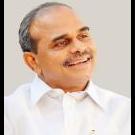-
-
-
-
Tell a friend
-
-
Most viewed in last 30 days
-
 292
292psycopk · Started
-

-

-

-

-

-

-

-

-

-

-

-

-

-

-

-

-

-

-

-

psycopk · Started




















Recommended Posts
Join the conversation
You can post now and register later. If you have an account, sign in now to post with your account.